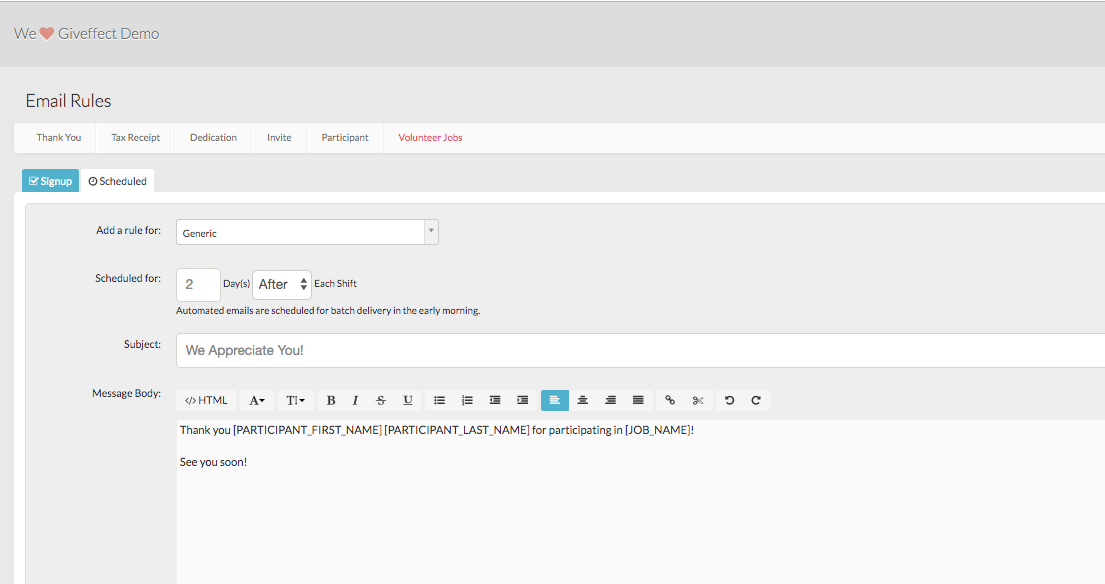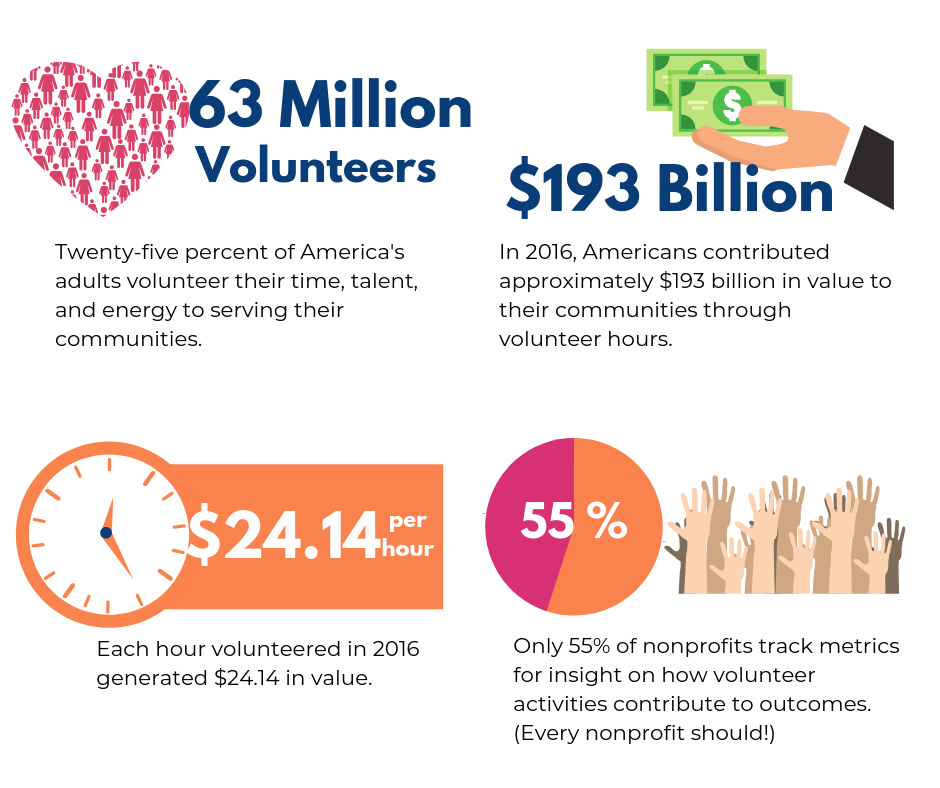Take a moment to think about how your organization would change if there were no volunteers. What would that environment look like? Volunteers are an essential resource for nonprofits, which is precisely why volunteer appreciation is so important. They give their selfless commitment and efforts in support of your nonprofit’s mission. In truth, our volunteers help in so many ways, from our organization’s operations to the execution of our goals. The resources they donate are precious, and volunteer value is increasing year after year. In 2016, the national value of volunteer time was $24.14 per hour. Presently, Americans contribute over $193 billion of their time to your missions and the communities they serve.
Organizations must take the opportunity to recognize the efforts of the individuals who have raised funds, provided labor, or any of the many roles that volunteers play. Above all, volunteers are your ambassadors. Their volunteer experience influences how they represent your organization and its mission. We want our volunteers to enjoy their experience and feel their efforts are appreciated. So that our supporters are happy and feel encouraged to come back.
Appreciation and recognition are important factors in volunteer retention. When volunteers feel valued, they are more likely to feel connected to your goals and continue participating with your organization. Volunteer recruitment and training are costly for nonprofits, both in time and money. So, it’s in the organization’s best interest to make sure they have a satisfying experience and increase retention rates. Because of this, organizations need an ongoing recognition strategy so that volunteers feel their value on a regular basis throughout the year.
To that end, each nonprofit is unique and needs to develop its own volunteer recognition best practices. Take a look at the following volunteer appreciation ideas and best practices to get you started:
Say “thank you” often.
Don’t wait until volunteer appreciation week or at the end of a major event to show appreciation for their volunteers’ efforts. Volunteer recognition should happen year-round, both informally and formally. You can send a nice e-card or give them some shine in your volunteer newsletter.

Show appreciation in different ways.
Have some variety in your appreciation efforts, from the informal thank you call to a more formal dinner.
Personalize it.
Take the time to get to know your volunteers and their interests. It will help you learn how to recognize each supporter and make them feel irreplaceable. As a rule of thumb, always recognize the efforts of the individual and not the end results. For example, “You are appreciated!” rather than “This is a great job!”
Be consistent and prompt.
Set schedules to recognize your volunteers’ achievements soon after it has been reached. A late “thank you” weeks later will lessen the value of your gratitude. And, make sure your efforts are consistently maintained. Hosting volunteer recognition awards one year will set the expectation for years to come.

